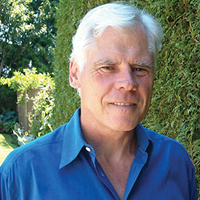
By / Meredith Low
The Old Normal isn’t Coming Back
I’ve said it. You’ve said it. Sometimes wistfully, sometimes with a vague hand-wave type of gesture: “When things get back to normal…”
And sure, that looks like it’s going to apply for a lot of things. Sort of. My neighbourhood already has a ton of heartbreaking “out of business” signs up. But some restaurants will survive.
But if you have kids, and you think (or say) “when we’re back to normal,” you already know, deep down, why that’s not quite right. Your kids will be older when X can happen again. They might have outgrown some of these things they miss doing. Or grown into new interests. Time feels weird these days, but it does march on nonetheless.
The lure of the old normal
At the beginning of the pandemic, I was talking to a lot of folks about how governance is working in these times, and what really struck me was how many people just assumed that they could defer serious discussions “until we can meet as normal.”
Inertia is a powerful thing. People, organizations, and societies can be stubbornly resistant to change, or find it terribly difficult, even when it’s in our best interests. Think struggles to quit smoking; long-overdue and painfully slow equity, diversity, inclusion, and reconciliation work; woefully inadequate climate change responses given the urgency of the problem.
But lately, I’m hearing more and more people say, increasingly vehemently, that various genies will not be going tidily back into their bottles. That they think consumer and employee and employer and volunteer habits have changed in ways that will prove durable (and interesting).
We now know we can attend a great conference virtually—and even the ones that haven’t been so great have still had value and shown us where we need to evolve.
We now know we can be productive working from home—there are still unanswered questions about levels of productivity, generating innovation and creative ideas, assessing performance from a distance, and so on, but we’ve got lived experience that will help us through those discussions.
We now know we can have serious discussions and make big decisions via videoconference, if we need to.
Potential silver linings …
- If you previously only had a small percentage of members at your conference, now is the time to think seriously about how you’re really serving them—shouldn’t they expect hybrid even when you go back to in-person?
- If you had an underutilized office because of travel or because your staff just didn’t work together much in person, do you need to think about your cross-silo collaboration? Or could you think about letting go of the physical office and expand your hiring pool to a broader geography? Or a mix of those? Or something else?
- If you’ve kept your board meetings to the full-day or two-or-three-day marathons we usually do because everyone got on a plane and so we need to maximize the time together, I can see you’d want to get back to in-person. But can you think differently about your agenda design and meeting duration in a virtual context?(And about how you train and support your board chair while you’re at it?) Why should your board calendar look exactly the same?
Talking about “going back to normal” is in fact a very precise prediction about the future. It suggests that nothing about the pandemic will turn out to have made a significant change.
That’s obviously not true. Especially not for the millions of people who are and will be grieving a loved one, coping with the long-term health effects of COVID, dealing with a business closure or a job loss, living with the effects of trauma as a first responder or health care worker or even essential worker—for all those who bore an inordinate amount of risk and pain during this whole crisis. People directly affected in these ways may hear “back to normal” as an idea that’s a luxury that’s completely out of reach.
But it also strikes me as a dangerous sentiment for anyone who’s trying to figure out how to lead any kind of team or organization into whatever the post-pandemic world looks like. What underlying trends have been exacerbated or slowed or muffled or disappeared by the pandemic? What new opportunities have emerged? What questions does this all raise for your sector, for your organization?
What other change might be possible? Especially now? What changes can we choose?
If we can help you think about what lies ahead, and what to do about it, please get in touch at meredithlow.com/meredith-low-about. ▪



